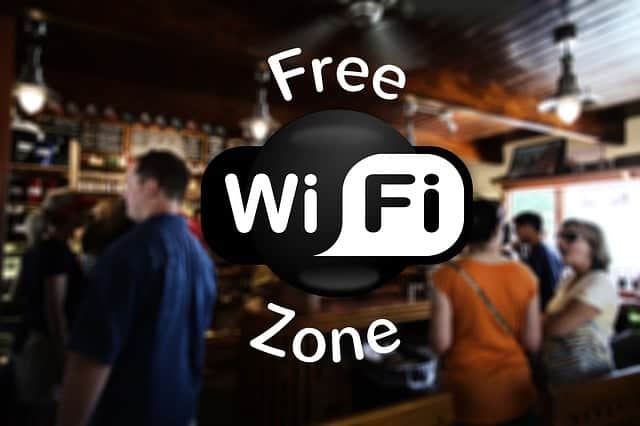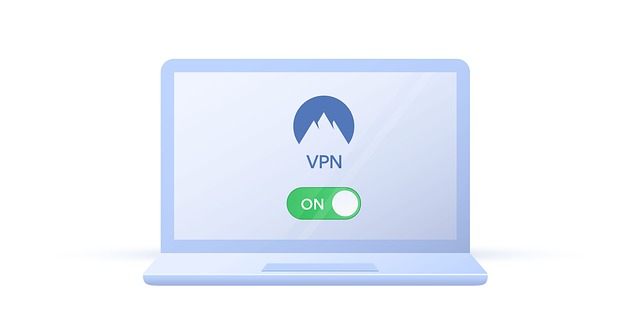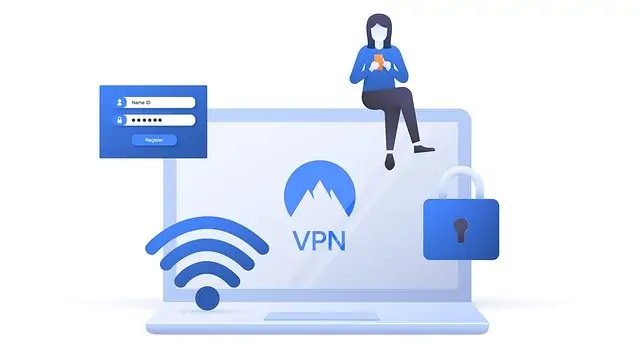There are well known potential vulnerabilities with Wi-Fi networks, both public and private, and some possible solutions to make Wi-Fi more secure. But what about Virtual Private Networks (VPNs) in particular? How do they work and can they make wireless connections more secure?
A VPN will make browsing more secure over a wireless network. They create a secure, encrypted connection that is very difficult to hack that shields the browser from any hacking or snooping and ensures the privacy of any data sent.
Let’s look in more detail at how VPNs work and some different VPNs that we recommend.
The Vulnerabilities of Public Wi-Fi
Whilst Wi-Fi in private homes does tend to be reasonably secure, it does have some vulnerabilities. Some precautions can be taken regarding setting strong usernames and passwords and some router settings can be changed to make the wireless network more secure and less likely to be hacked.
In truth reports of private wireless networks being hacked are quite rare. The hacker has to be in close enough proximity to pick up the signal and if you follow the precautions we suggested it will be much harder for them to hack the router anyway.
A team of Belgian experts did manage to crack the modern WPA 2 Wi-Fi security protocol in 2017, exposing a flaw in security keys. Thankfully they were researchers into the topic and did not have malicious intent. Patches were quickly issued in an attempt to fix the problem.
Nevertheless the bigger problem with Wi-Fi security is on public Wi-Fi networks, which do not have the same level of security as those in homes.
Public Wi-Fi networks tend to be set up for convenience over security, often not being encrypted or password protected which means that any data sent over it can be intercepted in a Man in the Middle attack.
The main thing is obviously not to enter any sensitive information over a public wireless network unless there is some kind of encryption, either the green https padlock symbol or preferably a VPN, which we will detail below.
For general browsing like sports results, weather forecasts, news etc then security doesn’t really matter but if you are entering any kind of personal or private information like usernames, passwords and bank details you would not want others to see, the wireless network needs to be secure. Using unprotected Wi-Fi in any public place such as the following is not recommended:
- Cafes/Bars/Restaurants
- Hotels
- Airports
- Train and bus stations and on certain trains
- University and college campuses
- Public libraries
- Shopping centres
- Any other public building with Wi-Fi.

Public Wi-Fi in particular is often not very secure and is open to hackers intercepting data through “Man in the middle” attacks
What is a VPN and How Does it Work?
A Virtual Private Network or VPN is a piece of software which creates a secure encrypted internet connection for your device. It effectively creates a virtual tunnel just for your browsing so that no one else can see or access it. Once set up, a VPN is very hard to crack so it is a powerful tool for internet security and privacy.
For this reason we argue that it is an essential tool for anyone entering personal or sensitive data over a public Wi-Fi network, such as a cafe, airport or other public building.
VPNs can also replace a person’s actual IP address with a different one, making it appear they are browsing from another region or even another country, which can help users to circumvent Government and ISP restrictions on certain sites.

VPNs can make connections more secure and private
VPNs Can Help on Home Wi-Fi Networks as Well
VPNs also carry similar benefits when used on home Wi-Fi networks, although the security on these networks tends to better than public Wi-Fi anyway. Home Wi-Fi networks do not have as many people connecting, and these people are not strangers, as opposed to huge public networks like at hotels and airports with hundreds of strangers connecting.
That said, private home Wi-Fi networks can still be hacked, just not so easily. Think of apartment blocks and inner cities where lots of users are crowded together in a small space, and can all reach each other’s Wi-Fi network.
It just takes one person who knows what they’re doing with hacking and has malicious intent to hack a close by network and steal personal data.
So VPNs are definitely still useful on home networks as well. They do not so much stop a private network from being hacked as encrypt and protect a browser’s individual traffic on that network. Using a VPN, no one is able to see what data you are sending and receiving. At best, all a hacker could see is that you are running an encrypted connection, but not what exactly you are sending over that connection.
Anyone on that network not using a VPN would not receive the same level of protection, though some VPNs can installed on the routers themselves to allow more widespread protection.
This is much the same way as the green https “secure” SSL padlock works; only a good VPN will tend to use much stronger encryption than the SSL padlock, making the connection much harder to hack.
VPNs can also be helpful at conserving privacy within shared home Wi-Fi networks, especially with all the data sharing that apps and streaming devices now do, sometimes without the user’s knowledge or consent. Some users aren’t comfortable sharing this information with other people on the network.
In other words, these days sometimes the videos that one user watched on their streaming device can show up as recommended videos on another person’s streaming device on the same network, since the programs/apps on these devices sometimes sync up or share data without us even knowing or consenting to this.
Using a VPN can stop this, fully encrypting the connection to and from your own device. No other user, or device, on that network knows what you are doing on a VPN connection.
More generally VPNs do tend to be more privacy tools used by individual devices on a network to make all browsing on that device private and secure.
The good news though is that paid VPN packages tend to allow installation on multiple devices, often 5 or 6, to ensure widespread protection anyway. Let’s look at some good options now.
Reputable Free VPNs For More Secure Browsing On Wi-Fi
The good news is that you don’t have to pay nowadays to get access to a good, secure VPN. There’s some good free options available that may sometimes have data caps, but will add a strong layer of encryption to your wireless connection to make it much more secure.
Check the table out for some good free VPN options.
| Provider | Free Server Locations | Data Limit | More Info |
|---|---|---|---|
| ProtonVPN | 3 (USA, Amsterdam, Japan) | Unlimited | See here |
| AtlasVPN | 3 (USA East, USA West, Amsterdam) | 5 GB/month | See here |
| TurboVPN | 4 (USA, Germany, Singapore, India). | Unlimited | See here |
| ZoogVPN | 5 (USA, UK, Netherlands) | 10 GB/month | See here |
| Hide.me | 5 (Netherlands, USA, Germany, UK, Canada) | 10 GB/month (random server selection) | See here |
| PrivadoVPN | 10 (USA, UK, Canada, Germany, France, Netherlands, Switzerland, Mexico, Brazil, Argentina, New Zealand) | 10 GB/month | See here |
| Windscribe | 10 (USA, UK, Canada, Hong Kong, France, Germany, Netherlands, Switzerland, Romania, Denmark). | 10 GB/month | Visit site |
| Tunnelbear | 49 | 500 MB/month | Visit site |
ProtonVPN’s free offering is great with unlimited use and 3 locations, and PrivadoVPN offer a great selection of free server locations.
If you’re wanting a Premium VPN which offers more server locations, 100% unlimited fast servers, plus access to streaming services, then there’s also loads of good options, ranging from $3-8/month in price.
NordVPN, ExpressVPN, ProtonVPN and Private Internet Access (PIA) are four larger, better known ones, but there’s plenty of others as well, like VyprVPN, PrivadoVPN, and so on.

